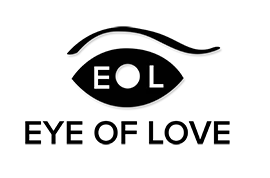
Feeding Your Feelings?
Emotional eating is simply a result of the discomfort of unwanted feelings. We tend to want to avoid painful feelings; we could say we swallow them as we overindulge in food—a way to stuff our emotions down to a place where they can be ignored for a while.
Eating becomes a way to disassociate from thoughts and feelings that make us uncomfortable. It is a temporary distraction from the products of our restless minds. But notice the word “temporary.” When the cake is gone, the feeling, the issue, the conflict, or the problem is still very much present—along with the additional pounds.
-The French Twist, Twelve Secrets of Decadent Dining and natural Weight Management
How can you be sure it’s emotional eating?
- Emotional hunger comes on suddenly; physical hunger occurs gradually.
- Emotional hunger feels like it needs to be satisfied instantly with the food you crave; physical hunger can wait until you know exactly what you have a taste for.
- Emotional eating is like a case of amnesia- you may not be “awake at the plate” or remember eating.
- The idea of physical hunger doesn’t enter the equation- hunger stems from a sense of feeling emotionally undernourished.
- Boredom, anxiety, tension, joy or sadness and restlessness replace physical hunger and prompt you to eat.
- Emotional eating leaves behind feelings of guilt; eating when you are physically hungry is satisfying.
Mindless and emotional eating is dangerous. It results in excess weight and a host of health-related issues: type 2-diabetes, heart disease, and high cholesterol to name a few. Beyond the physical health risks, overweight individuals suffer with feelings of depression and isolation, creating a vicious cycle of emotional eating.
How can you overcome emotional eating?
Fad Dieting is a perfect set-up for emotional eating and is the ultimate betrayal. There is no more efficient way to lose touch with yourself and your body’s cues than to restrict your eating.
To end emotional eating begin by stripping away outside influences, starting with the distraction of diets, and getting back in touch with your own desires, preferences, palate, heritage, genetics, traditions, lifestyle, and uniqueness.
A truly successful approach is one that deals with an individual’s self-image as well as the underlying emotional needs that cause overeating. The point is that it is not possible to take off the pounds without dealing with the mind-set. Until such time as this shift occurs, our emotional and physical hungers will remain bottomless and insatiable.
Begin by rediscovering the inner beauty with which you were created, and you will make a major stride toward successful weight loss or any other avenue of self-improvement. Ultimately, emotional eating can only be overcome when we heal by getting to know and love the self we are already in. The way out is in.





